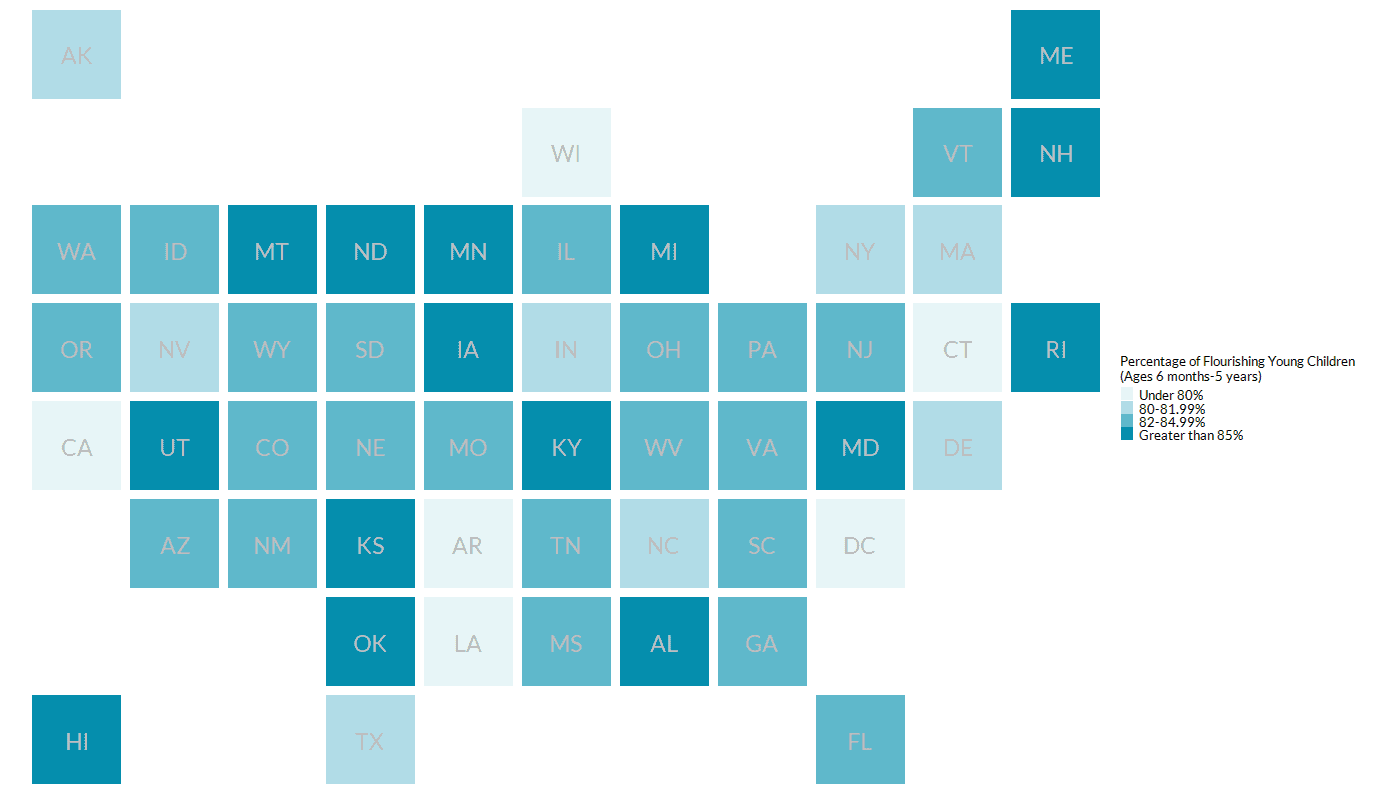
Maternal & Child Health Data
Emotional Flourishing, 2022
Early childhood experiences can have long-term impacts on children’s social, cognitive, emotional and physical development. Healthy early development can prepare children to reach their fullest potential in life by preparing them for future education and workforce experiences. Beyond child- and family-level factors, such as child temperament and parenting skills, community-level factors can also impact children’s ability to flourish emotionally. Housing instability, violence in the community, and other exposures to stress and trauma can impede children’s healthy emotional development.
Not all parents have equal access to parenting supports and community resources that can help support their child’s healthy emotional development, and structural disinvestment in communities of color can drive disparities across racial and ethnic groups. The table below presents data disaggregated by race and ethnicity to help us identify inequities and work toward solutions that promote equity.
Home Visiting as Part of the Solution. Home visitors teach parents how to engage with their children in positive, nurturing, and responsive ways, and they educate them about child development and age-appropriate behavior. Such information and skills can help parents support their children’s healthy emotional development and increase the likelihood that children meet the “flourishing criteria” for items on the National Survey of Children’s Health.
Emotional Flourishing by State, 2019–2020

| State | All Groups | Asian | Black or African American | Hispanic | White | Another Group |
Notes: NA indicates that the total number of respondents to this measure (unweighted denominator) is less than 30, which does not meet Maternal and Child Health Bureau data display criteria. Counts associated with specific racial and ethnic groups (that is, Asian, Black/ African American, Hispanic, White) are mutually exclusive.
Definition: Flourishing for young children refers to the percentage of children aged 6 months to 5 years who meet the flourishing criteria for all four items in the National Survey of Children’s Health, which aim to capture curiosity and discovery about learning, resilience, attachment with parent, and contentment with life. Survey responses are collected from a parent or guardian on these four questions: How often: (1) is this child affectionate and tender, (2) does this child bounce back quickly when things do not go his/her way, (3) does this child show interest and curiosity in learning new things, and (4) does this child smile and laugh? The “always” or “usually” responses to the question indicate that the child meets the flourishing item criteria. The full population sample, pooled from 2019–2020 (2 years combined) data, includes non-institutionalized children in the United States aged 0–17 and is weighted to be representative of that subgroup of the U.S. population.
Source: Child and Adolescent Health Measurement Initiative. 2019–2020 National Survey of Children’s Health (NSCH) data query. Data Resource Center for Child and Adolescent Health supported by Cooperative Agreement U59MC27866 from the U.S. Department of Health and Human Services, Health Resources and Services Administration’s Maternal and Child Health Bureau (HRSA MCHB). www.childhealthdata.org